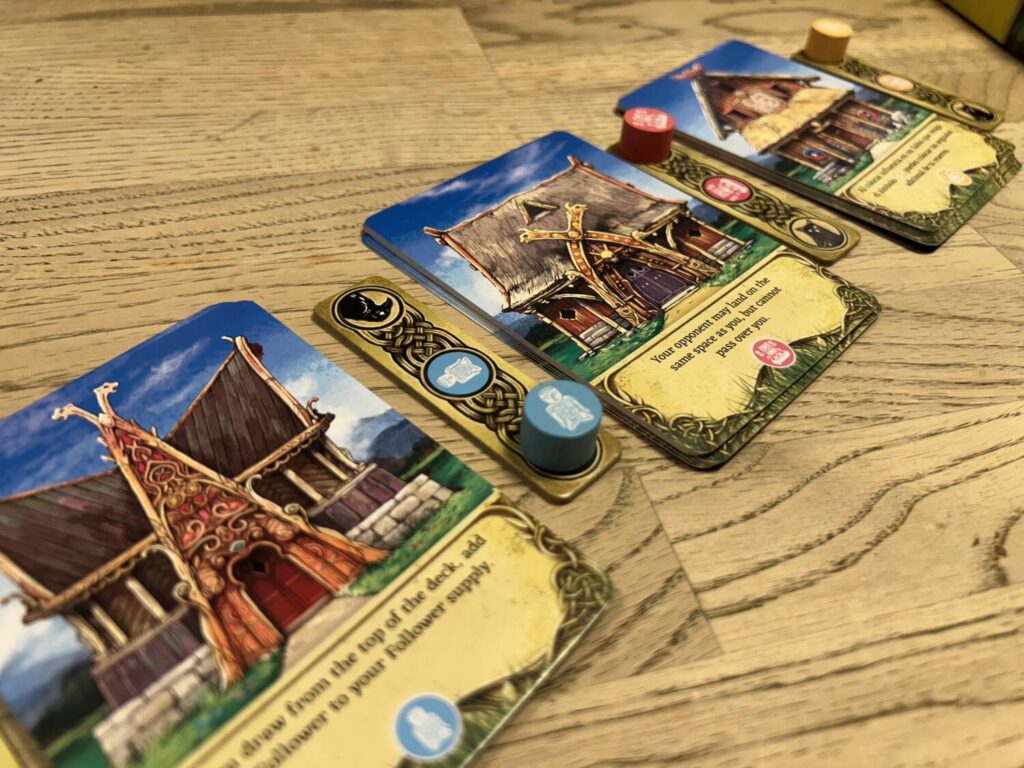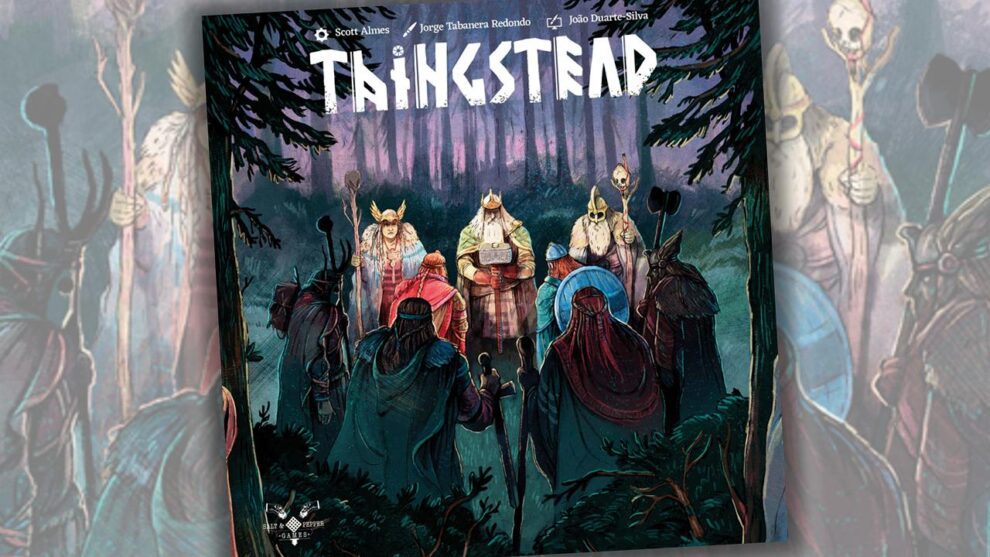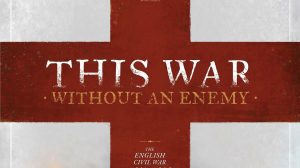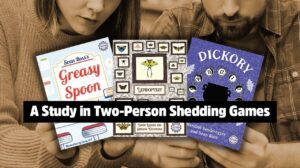Disclosure: Meeple Mountain received a free copy of this product in exchange for an honest, unbiased review. This review is not intended to be an endorsement.
Thingstead falls into that strangest category of board games: I don’t have any interest in playing it, I don’t think it’s particularly good, and I’d also believe entirely anyone who said it’s a masterpiece. Scott Almes’s two-player area-control game is doing just enough new and different things that, though I think it works about as well as a hang glider fashioned from Swiss cheese, I could see it being exactly what certain people are looking for.
The area control works across two dimensions. Each turn, you play a card, either to exert pull on one of the four Clans, or to add influence to one of the seven viking Elders around the central ring. Both options net you points come the end of the game, but you may have other motives at any particular time. The Clans also give you either temporary or permanent access to various powers, depending on which Clan card sits at the top of that particular Clan deck. The Elders, meanwhile, serve as the game’s tempo control. If enough influence is placed on enough Elders, the game comes to an end.

You influence the Clans by playing cards from your hand facedown. While each card has a value between 1 and 3, those values aren’t revealed until the end of the game. During the game, it’s all about order of play. If I play a card to one or another Clan first, I gain temporary access to their power. If I play a second card to that Clan before you play a first one, I gain that current Clan power permanently. I take the Clan card and put it in front of me, revealing the next card and power for that Clan. In that sense, Thingstead is an engine builder.
Meanwhile, those Elders in the center of the table are influenced by playing cards from your hand faceup. There are a few things to consider here. First, the card you play provides you with a certain amount of movement. You start by moving your player pawn around the circle, in either direction. Then, the color of the card you played has to match one of the colors listed on the destination Elder. At that point, you add influence tokens to the current Elder and its two neighbors in accordance with the values listed at the bottom of the played card.

It’s not as simple as that, though, which I do say with the appropriate level of irony. The Elders occupy seven slots around a cardboard ring with various modifiers on it. These modifiers have to be taken into account when adding that influence. At one end, three of the slots are worth negative amounts, while the two slots opposite are each worth +1. When you’re done with your turn, the ring rotates so that the strongest negative modifier is now pointing towards the Elder you just played to. The ring discourages players from playing atop one another. It keeps the game from becoming a slog, or at least in theory.
In practice, everything about Thingstead feels like a bit of a slog. There’s so much to keep track of at any one point that nothing ever firms up. I couldn’t really tell you what I’m doing or why I’m doing it most of the time, and that’s after several plays. Scoring always ends up tight, but it’s my experience that tight scoring in a game where I don’t know what I’m doing means the game is more or less on autopilot.
To me, Thingstead feels unfocused, dull, arbitrary, and I often feel stuck when I want to feel torn. And yet, if someone told me they’d played this dozens of times, they’d mastered the systems, and it’s a magnificent game, I would absolutely believe them, without hesitation, and I would love to hear more about why. None of that means I’m about to sit down and play it again, though.










